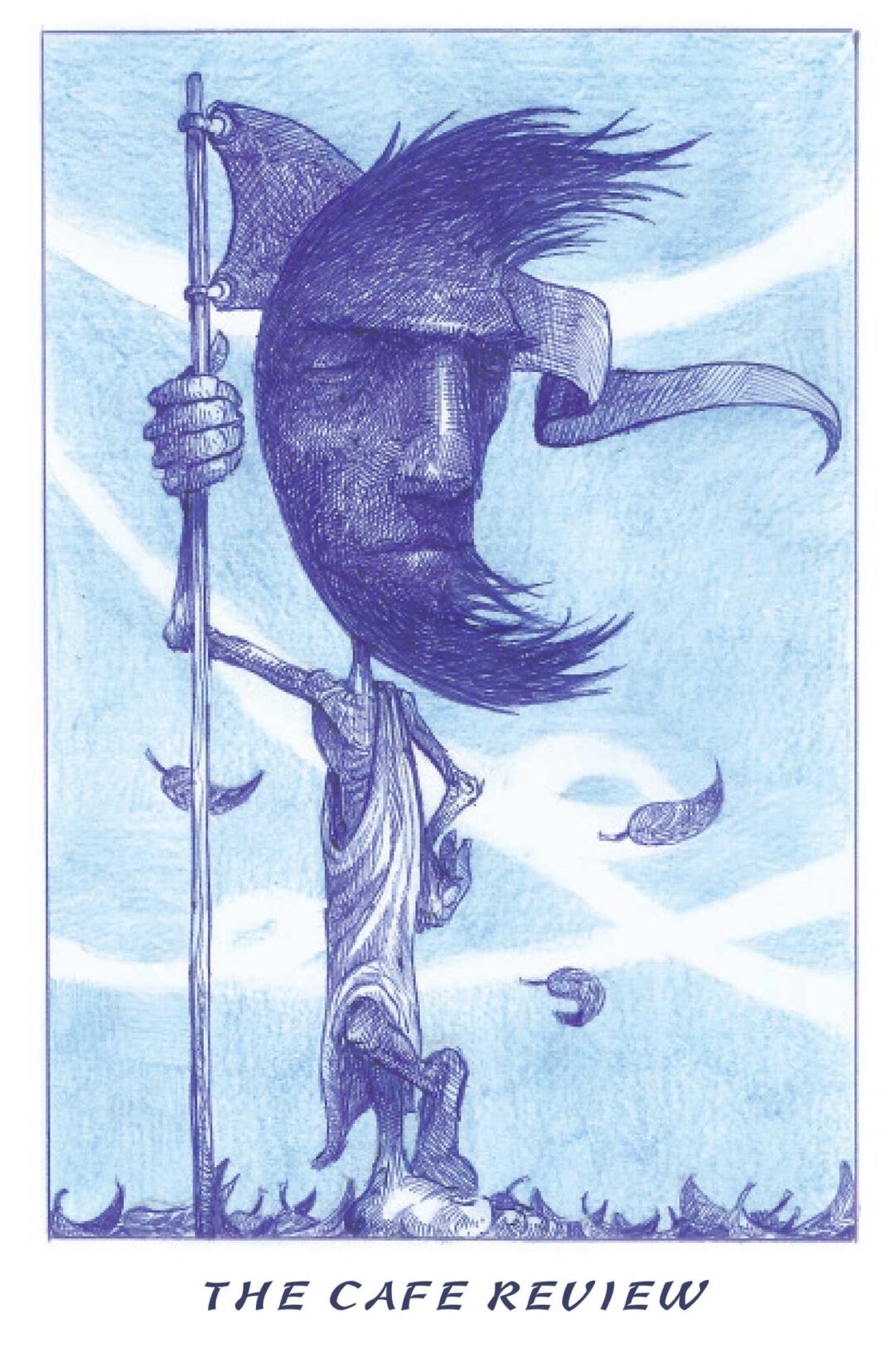A Lifetime in Spy School

By Oz Hardwick
We meet again in a different library, as if we’re spies in a gritty 60s thriller, talking like adults but with our thinly–disguised childness cracking through. As arranged by anonymous bosses, she is carrying
paperback novels by Mauriac, Gide, and Fournier, while I am pretending to read up on the development of vaulting in medieval British cathedrals, from Durham’s brick barrels to Lincoln’s crazy liernes. We were younger then, we say in sync, and swap the smiles we’ve not worn for a long, long time. No one is watching. The shipyard gates are rusted shut, she says, as someone starts a drunken song but is silenced by a librarian who looks too young to remember books. The coast has changed beyond all recognition, I reply, with the precise intonation the script demands. No one is listening, though uniformed guards smoking sour cigarettes are unwinding barbed wire to string across
windows. The door is narrow, she says. York Minster’s wooden vaulting facilitated an exceptional span, I reply. Outside, a car chokes into reluctant life. Illegible pages flutter like Russian snow.
The Alhambra Covenant

By Oz Hardwick
The theater was built by children, their small hands towering bricks with unlikely precision. The design came from a competition on a TV show that was popular at the time, though no one remembers it now, on which there was a weekly segment with a talking dog. The dog headlined the theatre’s opening night, groomed beyond perfection as it spoke of the way that we — the kids who crowded the plush auditorium — were the future, and that the arts, as much as putting a man on the Moon (it must have been the 60s) would shape a world, and possibly a whole Space Federation, in which every one of us would be happy forever. It was the first time in my life that I cried for joy. And it was my first — and so far only — brush with celebrity as, later that evening, I bumped into the dog along the seafront, sniffing around outside the penny arcade. He gave me an inky pawprint in my autograph book, and he gave me the sort of look that humans can only aspire to, as he assured me that every word he’d said was true.
Of course, he’s long gone and forgotten, the arcade’s boarded up, and the theatre’s falling down; but I read the papers, I watch the News, I doom scroll through worsening catastrophes, and I know who I’d rather believe.
Nest

By Oz Hardwick
I carry my mother in the palm of my hand. The obvious simile is a bird — or, more specifically, a blue
hummingbird — but I don’t want to go there yet. Instead, I’ll explore the image of a jeweller’s branded
box, with lettering like a 60s cigarette packet or a tissue leaf from a box of chocolate mints you’d only buy for special occasions. It’s the kind that holds a ring on a plush scarlet cushion. Sometimes it’s a sparkler for the peak of a giddy dream, at others it’s the ordinary beauty which will ache with love for year after year after year. But what of the box? To a child, it can hold a treasure of plastic, a phalanx of troops, a susurration of seashells, a bouquet of bears’ eyes, an epiphany of planets. And this one? This one? This one cups a blue egg in scarlet plush. Because it’s a bird. It was always a bird.
Hurtle On

By Jane Simon
Every day a new hurdle to define,
then climb. Do not despair but take
within that hair of being; it is our
quandary to tarry, and hope to expose
another angle, to spur a novel answer
to this never–ending series of hurdles,
that our friends, the long–lived turtles
with aplomb, cope, lumber and master.


